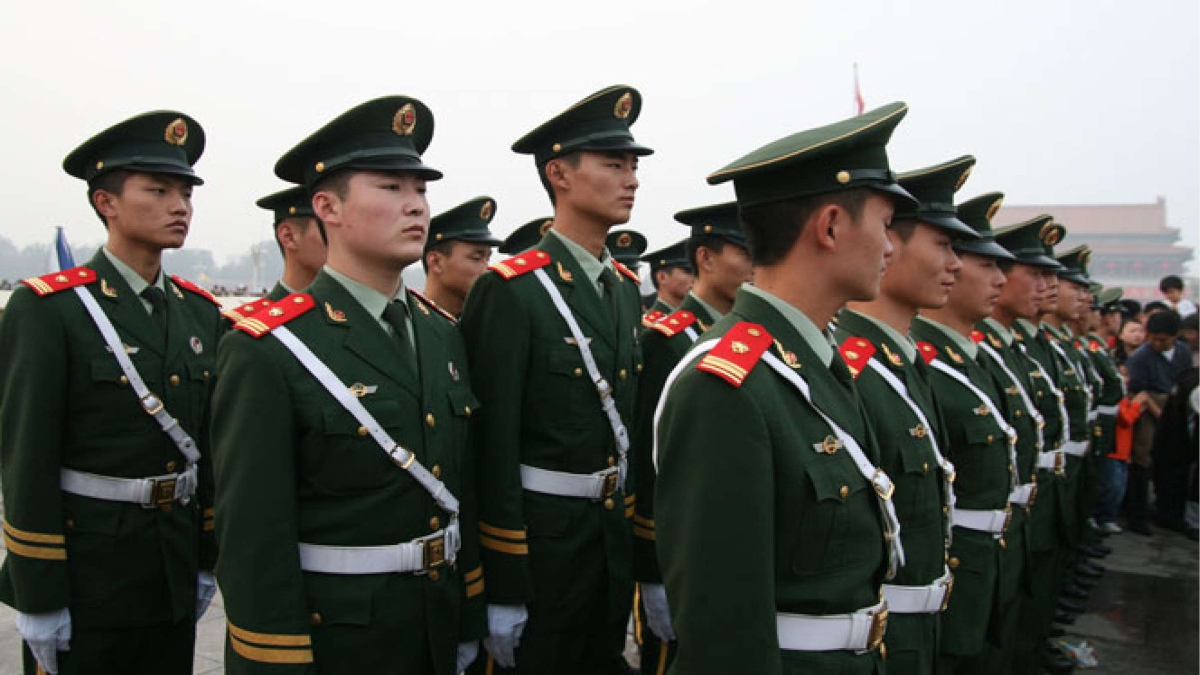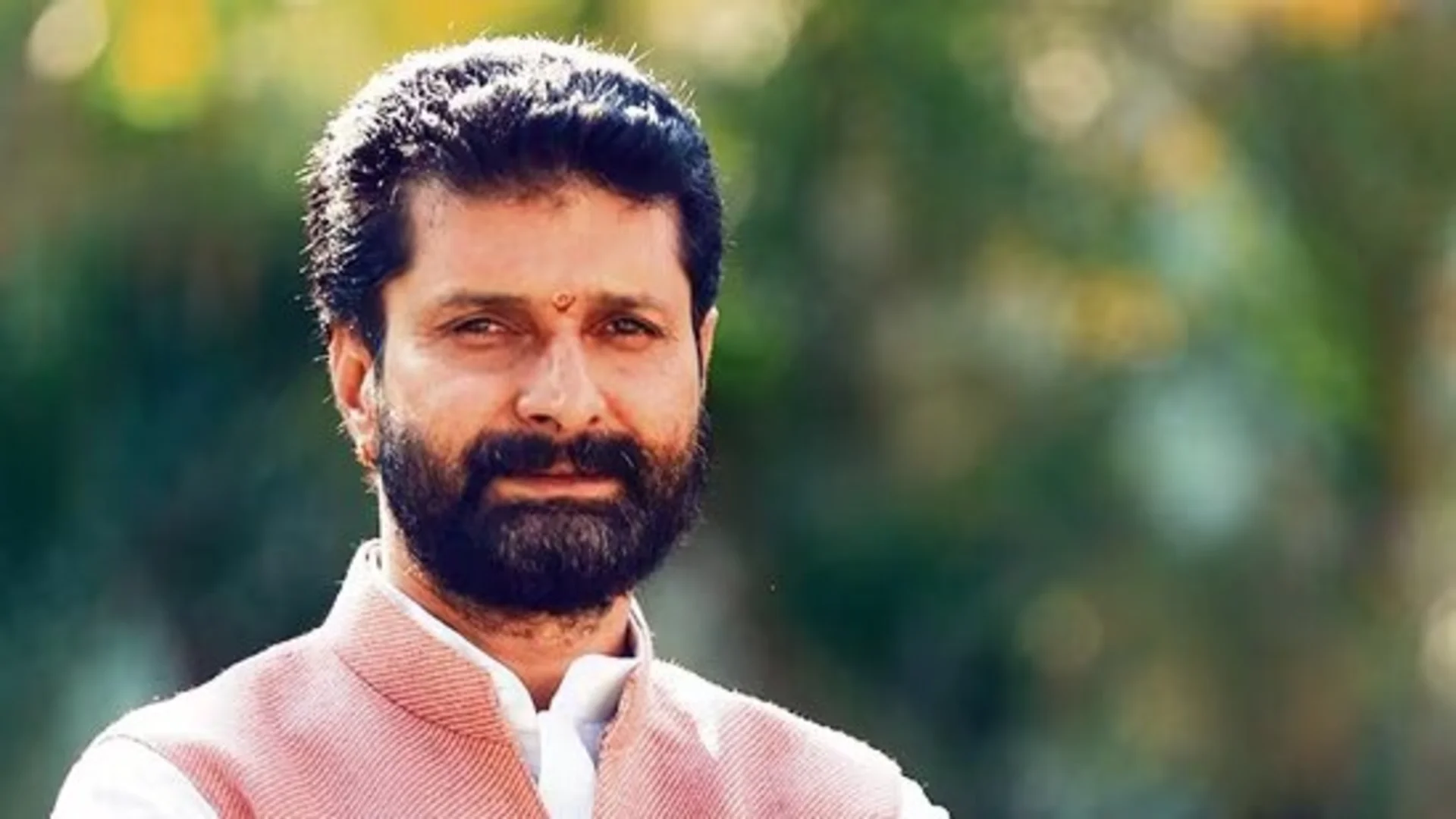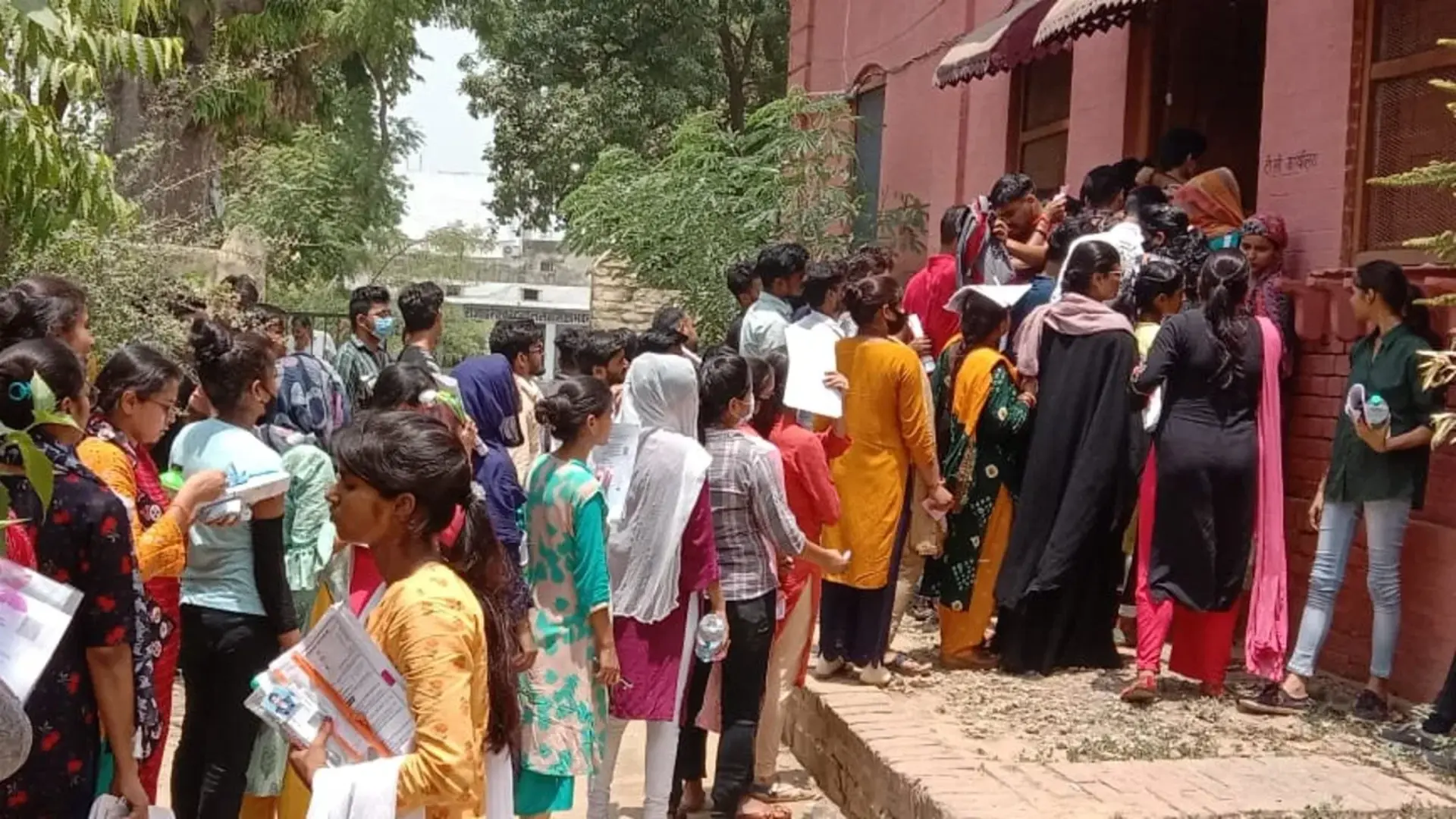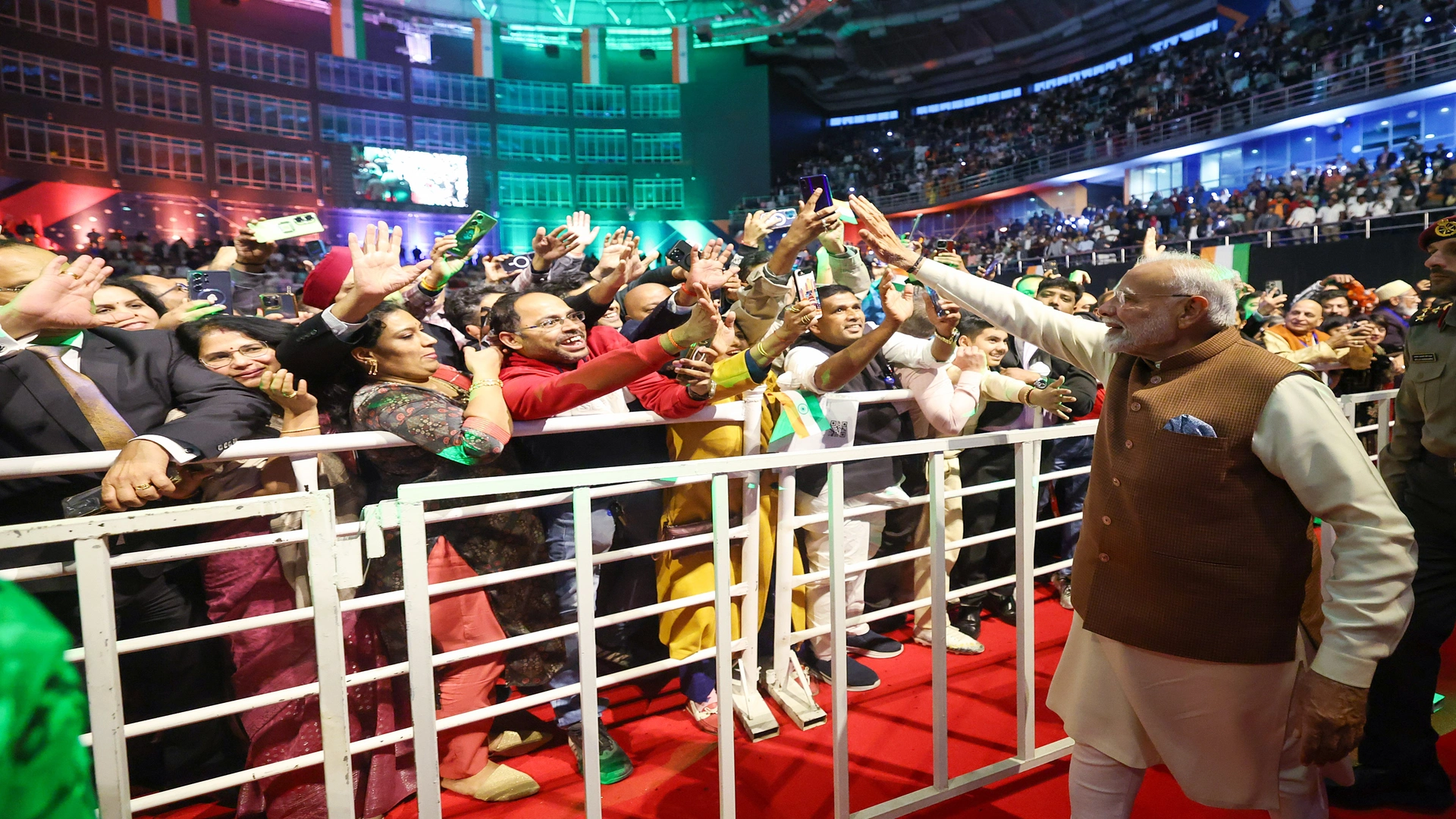Let me start by putting the cart before the horse. Rising China is already an economic superpower. It is flexing diplomatic, technological and military muscles to be the next all-around superpower as analyses about a declining USA abound. However, China itself is declining. A couple of years back when people spoke of this decline, they were pooh pooed. China was expected to overcome its hurdles effortlessly to become a superpower. When the Chinese Virus broke, everyone seemed crippled against its onslaught. China went from strength to strength. It virtually rewrote the world order and rules as per its aggressive writ. China was a step away from being a superpower. Then subtle changes started. Demography and the virus turned the tide. Analysts are now writing that China has peaked. If China has peaked it will not be a superpower. That is my considered opinion. It is based on an overview of the canvas which has been unfolding in front of all of us. However, let me clarify. China will not collapse. It will remain an international power to reckon with. It will not be the fire breathing dragon which it is normally depicted as. It will remain troublesome as ever though. India has to adjust to the emerging reality and reorient itself. Now that I have put my foot in the mouth, let me expound.


A young and growing population is necessary to propel national aspirations, drive economic growth, equip and man a modern military. 19th Century USA and 20th Century Germany and Japan exemplify this trend line. Powers rise on strong demographic tailwinds. China’s population is shrinking and ageing faster than any other country in the history of mankind. A demographic transition that took 126 years in France, 46 years in the UK, 40 years in Germany and 24 years in Japan is happening in 21 years in China. By 2022, China will be an aged society with one person in seven being over 65. Beyond that, the number of aged people will increase. China cannot tide over its old age crisis without being a pacifist or a conformist of an established international order. It does not have the time to set the new international order. On the other end, fewer people are getting married or starting families. Chinese birth rates are 10.48/1000 as against a global average of 18.1. Their fertility levels are below replacement rates. China’s one-child policy has consigned it to a declining population irreversibly. China’s working-age population has already declined by almost 40 million. The result — fewer workers, a costlier workforce, fewer consumers, more dependants besides a reduction in overall numbers of youth. This has economic, political, social, technological, developmental and other penalties. China rose to be power with a demographic tailwind in the past two decades. Historically, nations with a shrinking population have not risen to power. Hereafter it will decline in the oncoming demographic headwind. China’s rise has peaked as per SCMP, National Interest, Nikkei Asia and Bloomberg, to name few platforms. Many more have similar views.
China declared victory over the coronavirus last year. Its booming economy was on track. People removed their masks and gathered for pool parties. The strict ‘Zero Covid’ approach was flaunted as an ideological and moral victory of the Chinese political system. Others, especially India were ridiculed. However, the super transmissible ‘Delta’ variant (Ro of 5) has caught China flatfooted. Delta has made China’s tough virus defences look fragile. It has appeared in 17 of its 31 provinces and major cities despite strict control protocols. The virus is spreading despite more than 1.7 billion vaccines being administered. China has stuck to its ‘Zero Covid’ policy of strict lockdowns, travel curbs, mass testing and tracing (multiple times) while the world is learning to live with Covid-19 as an endemic. Low efficacy vaccines and a population with low natural immunity leave China extremely vulnerable with no other option. This will intensify if Shi Zhengli, the batwoman of China is right. There will be more deadly variants to contend with. The Chinese economic engine could remain isolated and stutter for years. Competitors, who have suffered losses, have coped with the virus and are recovering. Every lockdown shuts the society and economy. It has started impacting the life and livelihood of 1.4 billion people. They are getting fatigued. This rigorous process imposes increasing social, economic and political costs in the long term. The CCP method of virus control has become a high stake political investment. Communists cannot import efficient vaccines or start a mitigation policy as in the West and other democracies since it will be the admittance of a flawed approach. As the virus continues to wreak havoc, Chinese virologists are voicing second thoughts on China’s approach. Look at it from any point of view — economic, technological, diplomatic or political- the law of diminishing returns has set in for the Chinese. On Jan 21, I had predicted that “Despite the well-advertised victory, China remains vulnerable to its virus…. the efficacy of Chinese vaccines is suspected to be low…. outbreaks in vulnerable and unvaccinated people will continue…there are grave internal issues if the Virus control goes awry…. as long as the Chinese virus is well and alive in its womb, it will trouble mother China. The virus is democratic unlike its autocratic mother”. I am being proven right within the year!
China’s capitalist economy under a strong authoritarian government-generated international envy, this powerful combination propelled national GDP, lifted millions out of poverty, sheet anchored the greatest military build-up attempted, embraced technology and gave rise to superpower dreams. It was fairy tale stuff. However, the underbelly started surfacing — widening social inequities and spiralling costs of housing, healthcare and education. The common man is out of the gravy. For example, the Chinese healthcare system is largely profit-oriented. Good hospitals are located in wealthy coastal cities. Inland China does not have adequate healthcare. Rurals are fleeced in cities by over-prescribing tests, drugs and procedures. The multibillion-dollar education technology sector was fuelling a high-priced education race that was going out of the reach of the middle class. The tech wave started accumulating data. Data, information, influence and power in China can reside only in the CCP. Data in the hands of anyone else is a threat to Communist hegemony. Hence, the CCP is prepared to be in the power of China which is not a superpower rather than being out of power in attempting to make China a superpower. So what does a revisionist system do immediately on turning 100? It torpedoes its wealth creators! Heard of Evergrande, Tencent, Alibaba, Huarong, Didi, Pinduoduo, New Oriental Education, Netease, C Garden, Kuaishou, Bilibili, and ByteDance Gaotu Techedu Inc, TAL Education Group, Archegos, Capital Management, New Oriental Education & Technology Group Inc, and Meituan’s? These are icons of the Chinese economy which created vast wealth, jobs, influence and power. They span almost all sectors. These icons have lost between 25% to 75% of their market capitalisation due to deliberate government decisions. A trillion dollars have gone down the drain without stretching the imagination. More are likely to follow. A slowing economy has been braked just through questionable decisions. Consider these examples. Encouraging families to have two-three children to increase population takes women off the workforce. The net effect on the economy is zero! If people cannot send children to education classes, they will hire private tutors who will be costlier! Such huge ‘one fine morning’ decisions will have economic and social impacts. The natural slowing down of the economy in Virus times has already created a situation of job scarcity. In such an environment, torpedoing wealth and job creators will have serious consequences. It is fully on the cards that all this self-destruction is being done due to political control only but due to inner factionalism.
There are other economic strains. As per a detailed Arabian Business report ‘China is experiencing an exodus of foreign firms despite surveys and published opinions from commerce lobby groups and business consultants…the pace of companies leaving China is accelerating, causing a “ripple effect” that threatens Covid-19 economic recovery. The exit also presents a challenge to President Xi Jinping’s “dual circulation” plans.’ Till last year, China’s growth was aided. Hereafter, its growth will be opposed and its decline will be aided. China is not the most popular government in Western societies as per Pew research. Very importantly, there is always a deep connection between business, trade and geopolitics. Chinese geopolitical assertion and its trade ambitions are definitely not aligned. It does not make good economic sense. Tony Abbot, ex-PM of Australia and Special Trade Envoy for India recently wrote ‘A swift deal between India and Australia would be an important sign of the democratic world’s tilt away from China…the answer to almost every question about China is India’. This is serious intent that can have a pied piper effect if India plays its cards well. Decoupling has begun to happen. If decoupling proceeds at the current rate for the next five years, a 25% shift is likely. That will be enough to take the wind out of China’s superpower sails. After that, the pace of decoupling will increase if China does not change track.
There are a host of other inhibitors. China is being justifiably blamed for hiding the origins of the virus and its spread through negligence. Its vaccine diplomacy is failing with many nations spurning Chinese jabs. Chinese technology is two-toned. In some respects, they are masters like in cyber and infotech. In others, they are suspect/failures like in vaccine and food technology. China remains a food deficient nation. Zhengzhou floods indicate that Chinese urban development and building models have been faulty. Every year China keeps bursting dams to ward off floods. This is weird since most of their dams were flood control structures in the first place. Climate change and pollution are set to have a major impact but their industrialisation and energy mix aids the former. Their mega project, BRI plus CPEC is in trouble. They have a huge debt bubble. Their language and form of government are inscrutable. It leads to either lack of understanding or trust or both. They lack allies and friends beyond Pakistan and North Korea. There are repressive strains in society. Non-Han ethnicities are not integrated with the mainstream. They are perpetual fault lines. Tibet, Taiwan and Xinjiang remain major challenges to the One China concept, the cornerstone of CCP. They are building an oversized military of questionable quality and utility that much is already proven. The new great game in Afghanistan is full of potholes.
There is a very important quality of a superpower, it is the ability to take in on the chin and recover. All superpowers past and present have demonstrated the ability to take a hit and bounce back. China’s ability to take a hit in the pre-revolution period is well known.
However, China under the CCP has built glass walls around it. These might just crack to bring the edifice down. The evidence is that China is risk-averse and will get into a fight only if it can win politically. Chinese leverages against competitors have been proven to be limited. Its ability to overcome its internal demons/schisms is disastrous. Examine China’s recent history. Modern China has been dominated by four leaders — Chiang Kai-shek, Mao Zedong, Deng Xiaoping, and Xi Jinping. All of them have left China with a gigantic problem for the next generation. They presided over China’s worst disasters, implemented flawed policies, endeavoured to superfast track progress and have led the country into a period of isolation, unrest and/or conflict. China cannot beat its own history to become a superpower.
Every factor identified analysed above is at cross purposes with each other. If China is still to be considered a superpower, all the best.
Lt Gen P.R. Shankar was India’s DG Artillery. He is highly decorated and qualified with vast operational experience. He contributed significantly to the modernisation and indigenisation of Artillery. He is now a Professor in the Aerospace Dept of IIT Madras and is involved in applied research for defence technology. His other articles can be read on www.gunnersshot.com
Chinese leverages against competitors have been proven to be limited. Its ability to overcome its internal demons/schisms is disastrous. Examine China’s recent history. Modern China has been dominated by four leaders—Chiang Kai-shek, Mao Zedong, Deng Xiaoping and Xi Jinping. All of them have left China with a gigantic problem for the next generation. They presided over China’s worst disasters, implemented flawed policies, endeavoured to fast-track progress and have led the country into a period of isolation, unrest and/or conflict. China cannot beat its own history to become a superpower.







